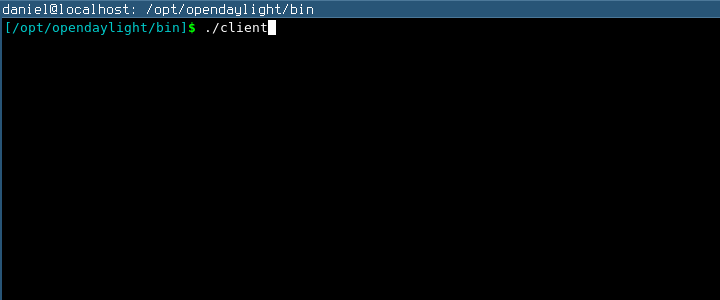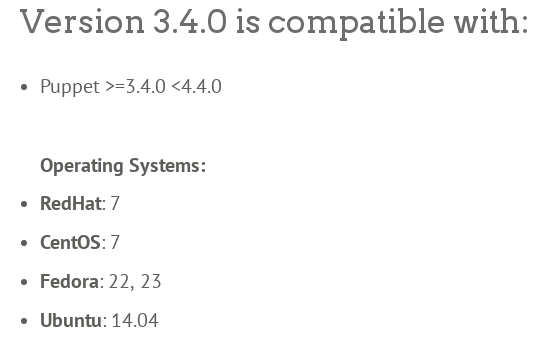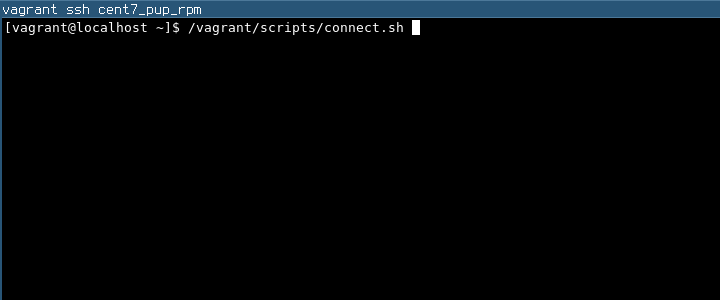Towards Continuous Delivery in SDN/NFV
Daniel Farrell
Red Hat SDN Team
VERY QUICK: INTRO TO ME
Daniel Farrell
Software Engineer, Red Hat SDN Team
VERY QUICK: INTRO TO ME
PTL:
-
OpenDaylight Integration/Packaging
- OPNFV CPerf
VERY QUICK: INTRO TO ME
Committer:
- OpenDaylight Integration/Test
- CentOS NFV SIG
VERY QUICK: INTRO TO ME
OpenDaylight TSC
VERY QUICK: INTRO TO ME
tl;dr - ODL side of ODL->OPNFV integration
Overview
OVERVIEW
What is CD?
OVERVIEW
What is OPNFV?
OVERVIEW
New CD requirements imposed by integration project CI
OVERVIEW
How OpenDaylight integrates into OPNFV
(guide for other projects)
CD?
CD?
"Continuous Delivery" or "Continuous Deployment"?
CD?
"Delivery": Delivering artifact for consumption
CD?
"Deployment": Deploy a delivered artifact
CD?
Upstream projects Deliver
CD?
Consumers (like OPNFV) Deploy
CD?
"Continuous": Project-specific
Per-[patch, commit, build-able artifact, day, semver bump...]
OPNFV
OPNFV
Open Platform for Network Function Virtualization
OPNFV
Integrates SDN/NFV projects
(new type of project)
OPNFV
Installer, test and development projects
OPNFV
Installer projects: Deploy *everything*
OPNFV
Installers: Apex, Compass, Fuel, Joid
OPNFV
Deployments are configured into "scenarios"
OPNFV
Virtual+CentOS+NSH OVS+ODL OVSDB/SFC/GBP+OpenStack
OPNFV
Bare Metal+CentOS+ODL cluster+OpenStack
OPNFV
Virtual+Ubuntu+ODL BGPVPN+OpenStack
OPNFV
Installer projects -> test projects
OPNFV
Test projects: CI against each installer scenario
OPNFV
Test projects: Functest, StorPerf, VSPerf, CPerf...
OPNFV
Test+Installer Projects -> Development Projects
OPNFV
Development projects: Improve upstream
OPNFV
"Improve upstream" <- The important part!
OPNFV: CREATING NEW REQUIREMENTS
OPNFV: CREATING NEW REQUIREMENTS
Upstream -> Installers -> Test Projects -> Upstream
OPNFV: CREATING NEW REQUIREMENTS
Upstream -> Installers -> Test Projects -> Upstream
^^Frequency of this cycle is important!
OPNFV: CREATING NEW REQUIREMENTS
Upstream -> Installers
1. Upstream projects must release frequently
OPNFV: CREATING NEW REQUIREMENTS
Upstream -> Installers
2. Upstream must provide install/config tools
New Req: Frequency
NEW REQ: FREQUENCY
1. Upstream projects need to release frequently
^^How frequently?
NEW REQ: FREQUENCY
OPNFV CI is limited by rate of integrated project releases
NEW REQ: FREQUENCY
OPNFV can't test new artifacts faster than they are released
NEW REQ: FREQUENCY
Slow releases -> re-testing same artifacts
NEW REQ: FREQUENCY
Quick releases -> Quick feedback about breakages
NEW REQ: FREQUENCY
New Theorem:
As OPNFV approaches CI, consumed project approach CD
NEW REQ: FREQUENCY
Affects all projects consumed by OPNFV
(ODL, ONOS, OpenContrail, OVS, DPDK...)
New Req: ARTIFACTS
NEW REQ: ARTIFACTS
Modern deployments require complex release artifacts
NEW REQ: ARTIFACTS
Tarballs and hope are not enough
NEW REQ: ARTIFACTS
Upstream must provide well-defined knobs for OPNFV's config
NEW REQ: ARTIFACTS
OPNFV minimum: Install via config management tool
(Puppet, Ansible)
NEW REQ: ARTIFACTS
OPNFV installers use ~Puppet for automated installs
NEW REQ: ARTIFACTS
Config tools typically build on packages
(RPM, .deb)
NEW REQ: ARTIFACTS
Config mgmt tools can be used to build pre-configured images
(Vagrant base boxes, Docker images)
NEW REQ: ARTIFACTS
Affects all projects consumed by OPNFV
(ODL, ONOS, OpenContrail, OVS, DPDK...)
ODL in OPNFV
ODL IN OPNFV
OpenDaylight is well-integrated into OPNFV
ODL IN OPNFV
So far: ODL Int/Pack tight with OPNFV Apex
ODL IN OPNFV
Recent progress: ODL integration into Fuel, Compass, JOID
ODL IN OPNFV
OpenDaylight installed by RPM
(ideally)
ODL IN OPNFV
OpenDaylight configured by puppet-opendaylight
ODL IN OPNFV
Puppet mod: Consumes RPM, exposes ODL config knobs
ODL's CD Pipeline
ODL'S CD PIPELINE
Three-layer stack
ODL'S CD PIPELINE
Packaging layer
ODL'S CD PIPELINE
RPM, .deb
ODL'S CD PIPELINE
Configuration Management Layer
ODL'S CD PIPELINE
Puppet module, Ansible role
ODL'S CD PIPELINE
Pre-Configured Images Layer
ODL'S CD PIPELINE
Containers, VMs
(Docker, Vagrant base boxes)
PACKAGE LAYER
PACKAGE LAYER
Handles system-level dependencies
(Java...)
PACKAGE LAYER
Lays down the basic files
PACKAGE LAYER
Creates required users/groups
PACKAGE LAYER
Sets permissions
PACKAGE LAYER
Configures systemd
PACKAGE LAYER
Current: RPMs
PACKAGE LAYER
In progress: DEBs
RPM
RPM
CentOS Community Build System
RPM
Example
RPM
[opendaylight-40-release]
name=CentOS CBS OpenDaylight Beryllium repository
baseurl=http://cbs.centos.org/repos/nfv7-opendaylight-40-release/$basearch/os/
enabled=1
gpgcheck=0
RPM
Install ODL's repo
[~]$ sudo curl -o /etc/yum.repos.d/opendaylight-40-release.repo \
<URL to repo config>
RPM
Install ODL
[~]$ sudo yum install -y opendaylight
<snip>
Installed:
opendaylight.noarch 0:4.0.0-1.el7
Complete!
RPM
Systemd integration
[~]$ sudo systemctl start opendaylight
RPM
Systemd integration
[~]$ sudo systemctl is-active opendaylight
active
RPM

RPM
[/opt/opendaylight/bin]$ ./client
<snip>
opendaylight-user@root>feature:install ... RPM
#endexample
Deb
Deb
LF intern, Akshita, building now
CONFIG MANAGEMENT LAYER
CONFIG MANAGEMENT LAYER
Installs ODL via package layer
CONFIG MANAGEMENT LAYER
Edits files to apply configuration
(Karaf features, port mappings, L3, logging, HA...)
CONFIG MANAGEMENT LAYER
Opens ports in FirewalD
CONFIG MANAGEMENT LAYER
Manages ODL's systemd service
PUPPET
Puppet
Puppet Forge
Puppet
Well-developed API
Puppet
We work to make contributing easy.
Puppet
OS Support

Puppet
Community: Ubuntu support
Puppet
Supports tarball-based installs
Puppet
class { 'opendaylight':
install_method => 'tarball',
tarball_url => '<URL to your custom tarball>',
unitfile_url => '<URL to your custom unitfile>',
}
Puppet
Soon: Tarballs -> .deb packages
Puppet
Well tested
PUPPET
rspec-puppet
(100% coverage, not worth discussion)
Puppet
Beaker
Puppet
Deploy against real VMs
Puppet
Verify resulting state
Puppet
Repeat for various configs
Puppet
At a high level...
Puppet
In detail...
Puppet
Bringing machine 'centos-7' up with 'virtualbox' provider...centos-7 12:45:09$ yum install -y puppetPuppet
centos-7 12:45:46$ puppet apply <test manifest>Puppet
centos-7 12:49:37$ /bin/sh -c systemctl\ is-active\ opendaylight
active
centos-7 executed in 0.04 seconds
should be runningPuppet
centos-7 12:49:37$ /bin/sh -c id\ odl
uid=1001(odl) gid=1001(odl) groups=1001(odl)
centos-7 executed in 0.04 seconds
should existPuppet
centos-7 executed in 0.05 seconds
should match /^featuresBoot=standard,ssh/Puppet
Finished in 5 minutes 22 seconds (files took 1 minute 10.87 seconds to load)
132 examples, 0 failuresPuppet
Beaker is pretty great
Puppet
Example: Vagrant provisioner
Puppet
At a high level...
Puppet
# Box that installs ODL via Puppet RPM method on CentOS 7
config.vm.define "cent7_pup_rpm" do |cent7_pup_rpm|
# Build Vagrant box based on CentOS 7
cent7_pup_rpm.vm.box = "centos/7"
# Add EPEL repo for access to Puppet et al
cent7_pup_rpm.vm.provision "shell", inline: "yum install -y epel-release"
# Install Puppet
cent7_pup_rpm.vm.provision "shell", inline: "yum install -y puppet"
# Install OpenDaylight using its Puppet module
cent7_pup_rpm.vm.provision "puppet" do |puppet|
puppet.module_path = ["modules"]
puppet.manifest_file = "odl_install.pp"
end
end
Puppet
In detail...
Puppet
puppet.manifest_file = "odl_install.pp"Puppet
[~/vagrant-opendaylight]$ cat manifests/odl_install.pp
class { 'opendaylight':
extra_features => ['odl-ovsdb-sfc'],
}
Puppet
Provision the box
Puppet
[~/vagrant-opendaylight]$ vagrant up cent7_pup_rpmPuppet
ODL installed
Notice: /Stage[main]/Opendaylight::Install/Yumrepo[opendaylight]/ensure: created
Notice: /Stage[main]/Opendaylight::Install/Package[opendaylight]/ensure: createdPuppet
Features configured
/Stage[main]/Opendaylight::Config/File[org.apache.karaf.features.cfg]/content: content changed '<hash>' to '<different hash>'
Puppet
Explore
Puppet
[~/vagrant-opendaylight]$ vagrant ssh cent7_pup_rpm
[vagrant@localhost ~]$Puppet
[vagrant@localhost ~]$ sudo systemctl is-active opendaylight
activePuppet
[vagrant@localhost ~]$ ssh -p 8101 karaf@localhost
# password "karaf"Puppet

Puppet
opendaylight-user@root>feature:list | grep odl-ovsdb-sfc
odl-ovsdb-sfc | 1.2.1-Beryllium | x | odl-ovsdb-sfc-1.2.1-Beryllium <snip>Puppet
#endexample
ANSIBLE
Ansible
Ansible Galaxy
Ansible
Simple
Ansible
[~/ansible-opendaylight]$ cat tasks/main.yml
---
- include: install_odl.yml
- include: configure_karaf_features.yml
- include: configure_nb_rest_port.yml
- include: open_nb_rest_port.yml
- include: start_odl.ymlAnsible
- name: Start ODL systemd service
service:
name=opendaylight
enabled=yes
state=started
Ansible
- name: Configure ODL Karaf features
template:
src=org.apache.karaf.features.cfg
dest=/opt/opendaylight/etc/
owner=odl
group=odl
notify:
- Stop ODL
- Cleanup Karaf
- Start ODL
Ansible
[~/ansible-opendaylight]$ wc -l **/*.yml
<snip>
203 totalAnsible
Rejects Puppet's style of testing
“don’t unit test your playbook"
“Ansible believes you should not need another framework to validate basic things of your infrastructure”
Ansible
So no rspec-puppet or Beaker
Ansible
Fail fast and clearly
Ansible
Focus on the deployment logic
Ansible
Example: Vagrant provisioner
Ansible
At a high level...
Ansible
# Box that installs ODL via its Ansible role on CentOS 7
config.vm.define "cent7_ansible" do |cent7_ansible|
# Build Vagrant box based on CentOS 7
cent7_ansible.vm.box = "centos/7"
# Install ODL using the Ansible provisioner
cent7_ansible.vm.provision "ansible" do |ansible|
# Path to Ansible playbook that installs ODL using ODL's Ansible role
ansible.playbook = "provisioning/playbook.yml"
end
endAnsible
In detail...
Ansible
ansible.playbook = "provisioning/playbook.yml"
Ansible
[~/vagrant-opendaylight]$ cat provisioning/playbook.yml
---
- hosts: all
sudo: yes
roles:
- opendaylight
ansible
Provision the box
Ansible
[~/vagrant-opendaylight]$ vagrant up cent7_ansibleansible
At a high level...
Ansible
In detail...
Ansible
TASK: [opendaylight | Add ODL yum repo] **********************************
changed: [cent7_ansible]
TASK: [opendaylight | Install ODL via RPM repo] **************************
changed: [cent7_ansible]
Ansible
TASK: [opendaylight | Check if FirewallD service is running] *************
ok: [cent7_ansible]
TASK: [opendaylight | Open ODL NB REST port via FirewallD] ***************
skipping: [cent7_ansible]
Ansible
TASK: [opendaylight | Start ODL systemd service] *************************
changed: [cent7_ansible]
Ansible
Explore
Ansible
[~/vagrant-opendaylight]$ vagrant ssh cent7_ansible
[vagrant@localhost ~]$Ansible
[vagrant@localhost ~]$ sudo systemctl is-active opendaylight
activeAnsible
Example: Config change
Ansible
[~/vagrant-opendaylight]$ cat provisioning/playbook.yml
---
- hosts: all
sudo: yes
roles:
- role: opendaylight
extra_features: ['odl-ovsdb-sfc']Ansible
[~/vagrant-opendaylight]$ vagrant provision cent7_ansibleansible
At a high level...
Ansible
In detail...
Ansible
TASK: [opendaylight | Configure ODL Karaf features] **********************
changed: [cent7_ansible]
Ansible
NOTIFIED: [opendaylight | Stop ODL] **************************************
changed: [cent7_ansible]
NOTIFIED: [opendaylight | Cleanup Karaf] *********************************
changed: [cent7_ansible]
NOTIFIED: [opendaylight | Start ODL] *************************************
changed: [cent7_ansible]Ansible
Explore
Ansible
[~/vagrant-opendaylight]$ vagrant ssh cent7_ansibleAnsible
[vagrant@localhost ~]$ sudo systemctl is-active opendaylight
activeAnsible
[vagrant@localhost ~]$ /vagrant/scripts/connect.sh
Ansible

Ansible
opendaylight-user@root>feature:list | grep odl-ovsdb-sfc
odl-ovsdb-sfc | 1.2.1-Beryllium | x | odl-ovsdb-sfc-1.2.1-Beryllium <snip>
PRE-CONFIGURED IMAGES
PRE-CONFIGURED IMAGES
Environment with ODL installed and configured
PRE-CONFIGURED IMAGES
Built using config management layer
PRE-CONFIGURED IMAGES
VM images
(Vagrant base boxes)
PRE-CONFIGURED IMAGES
Containers
(Docker)
PRE-CONFIGURED IMAGES
Built with Packer
PACKER
Packer
Creates ODL's Vagrant base box + Docker image
Packer
Everything's in VCS
Packer
Common Ansible path
(powerful config, free updates)
CONTAINERS
Containers
Example: One-liner Karaf shell
Containers
$ docker run -ti opendaylight/odl:4.0.0 /opt/opendaylight/bin/karafContainers
$ docker ps
CONTACONTAINER ID IMAGE COMMAND
b2869594fab3 opendaylight/odl:4.0.0 "/opt/opendaylight/bin/karaf"Containers
#endexamples
VAGRANT BASE BOX
Vagrant Base Box
Best user experience?
Vagrant Base Box
Example
Vagrant Base Box
[~/sandbox]$ vagrant init -m opendaylight/odl
[~/sandbox]$ cat Vagrantfile
Vagrant.configure(2) do |config|
config.vm.box = "opendaylight/odl"
end
Vagrant Base Box
[~/sandbox]$ vagrant upVagrant Base Box
default: URL: https://atlas.hashicorp.com/opendaylight/odl
==> default: Adding box 'opendaylight/odl' (v4.0.0)
Vagrant Base Box
[~/sandbox]$ vagrant status
Current machine states:
default running (libvirt)Vagrant Base Box
[~/sandbox]$ vagrant sshVagrant Base Box
[vagrant@localhost ~]$ sudo systemctl is-active opendaylight
activeVagrant Base Box
#endexample
CONCLUSION
CONCLUSION
Integrated project must do CD for integrators to do CI
CONCLUSION
Projects must provide modern delivery tools
(config mgmt, pre-built images)
Contact
Daniel Farrell
Twitter (optimal):
Others:
dfarrell@redhat.com
dfarrell07 on IRC, GitHub